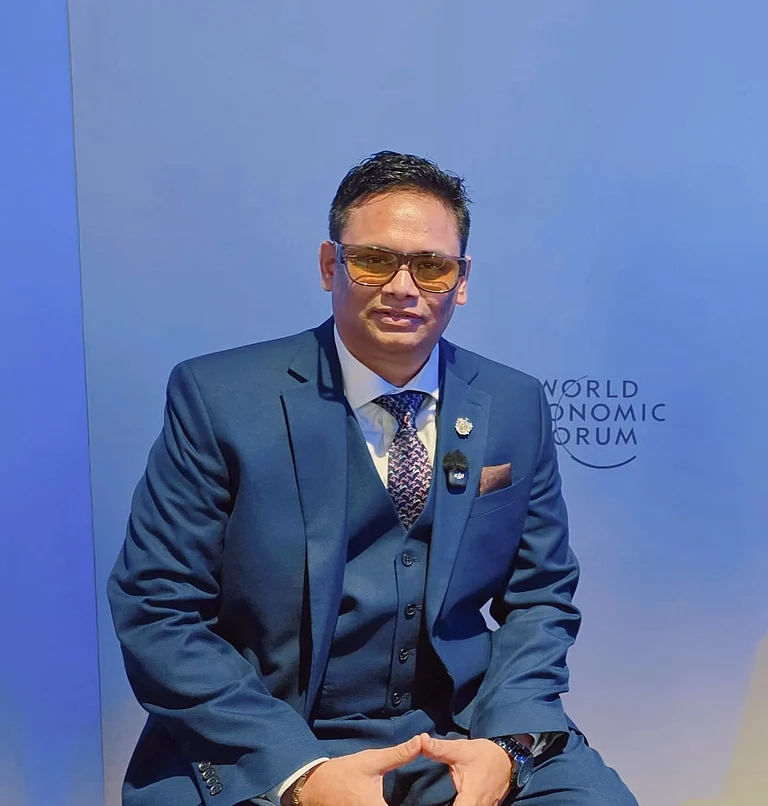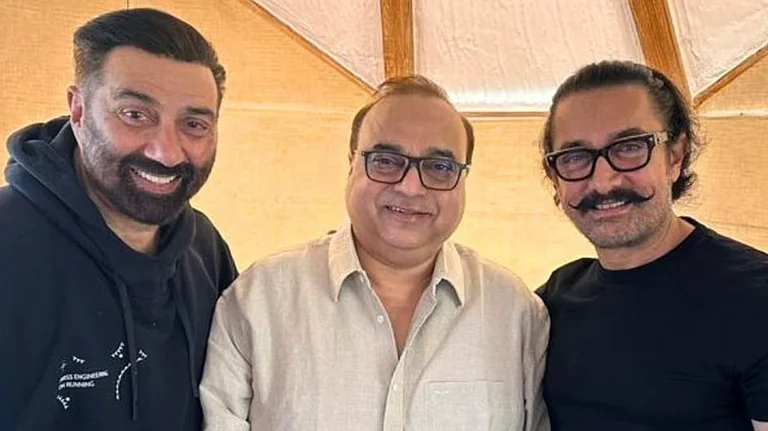Will the political heavyweights get way? That seemed to be the overriding question on everyone's mind when last week a special court in Delhi exonerated, among others, P.V. Narasimha Rao in the St Kitts case, saying there was no prime facie evidence against the former prime minister in forging bank documents and implicating V.P. Singh's son Ajeya.
The St Kitts letoff comes on the heels of the hawala hangama when the Delhi High Court excused one top politician after another due to 'lack of evidence': the court ruled that the Jain diaries did not constitute evidence. Till date, a clutch of politicians, including L.K. Advani, Madhavrao Scindia, N.D. Tiwari, Arjun Singh, R.K. Dhawan and others, have been acquitted. If that was not enough, the Enforcement Directorate's charges against politicians for gross foreign exchange violations were said to have been made on weak grounds. The reason is the same like the CBI's, the directorate depended too much on the Jain diaries for 'evidence'.
The trend has obviously delighted politicians, most of whom were at the mercy of the central agency's probes over the last two years. Says former Union minister and Congress leader K.K. Tewary, who was let off with Rao in St Kitts: "I am going to sue the CBI for the anguish it has caused. Hitting the headlines is one thing, proving flimsy charges in a court of law is quite another."
The court rulings have also cheered others whose cases are in the hearing queue, despite the fact that some of the charges are quite serious. Old Rajiv-aide and former Union minister Satish Sharma, accused of leading a helping hand to industrialists for favours granted, and gifting money to the several MPs implicated in the Jharkhand Mukti Morcha bribery scandal, is breathing easier. "My lawyers are reviewing the case. I think I have a good one," he told Outlook.
As for former Union minister Sukh Ram, key accused in the telecom scam, he says he will appeal in August. Even thought the Delhi High court has held him prime facie responsible for illegal favours to ARM, a Hyderabad-based telecom company, Sukh Ram claims he has been framed by the CBI.
Beleaguered Bihar chief minister Laloo Yadav, a fodder scam accused, told party legislator in Patna last week that the acquittal of people like L.K. Advani and Madan Lal Khurana in the hawala case just proved his point that the CBI was no more than a 'blackmailing' agency. The moral of the tale, he says, is that politicians are being defamed. Citing his own example, Laloo claims he is being harassed though there is no tangible proof to implicate him in the Rs 750-crore fodder scam.
The swift acquittals and the politicians' outrage at the use of such 'defamatory' tactics have shaken up the entire CBI network. Prime Minister I.K. Gujral also stepped in briefly to ask director Joginder Singh to maintain a low profile and desist from giving interviews on TV. Soon after, senior bureaucrats -- higher on the pecking order compared to the CBI boss -- impressed upon Gujral that the agency and its director were flying off the handle and must be reined in.
The CBI's problems may be traced to the jobs it undertakes. As is often the case, its investigations begin only after an informal political clearance and at a stage when 'criminals' and crucial witnesses may have 'disappeared'. Says former joint director N.K. Singh, who came close to nailing the key accused in the St Kitts forgery before being shunted out of the CBI: "Take St Kitts: between 1991 till date, there was no investigation. While the actual forgeries took place in the Rajiv Gandhi era, it is rather ambitious to expect witnesses to hang around after a decade to give their versions."
Similarly, in the hawala case, Singh says the Jain diaries lay in the CBI 'maikhana' for years before the Supreme Court intervened and ordered them to proceed with the probe. Not surprisingly, many witnesses disappeared before the CBI could question the people concerned and raid their premises. Their last option: to depend on the diaries.
But this gives only the partial picture. CBI officials admit privately that given the resources they have, it is often difficult to 'do justice' to all cases. Says lawyer Abani Sahu, an amicus curae in the hawala case: "The CBI's investigations have been so below par that any evidence of a quid pro quo cannot be established in most cases." And unless that is established, lawyers say it will be difficult to make the charges stick.
As a rearguard action -- some say a face-saving measure -- the CBI has decided to seek a Special Leave Petition (SLP) in the hawala case and possibly St Kitts as well. But even moving an SLP is not so easy. In the hawala case, for instance, the CBI moved the SLP, seeking the Law Ministry's nod to approach the Supreme Court, on April 19. The SLP contains the CBI counterpoint to the high court verdict: that the Jain diaries should be considered during the trail and not while framing charges; that the diaries, admissible evidence under section 10 of the Evidence Act, has 'inner coherence' backed by corroboratory evidence; and that the CBI has found changes in the 'spending pattern' of some of the 42 accused. But no one in the government has shown any enthusiasm to clear the SLP.
Now, there's a growing view that the CBI needs a total overhaul. Says lawyer Rajeev Dhawan, familiar with some of the cases built up by the CBI: "I support the need for a crack investigating agency, not like the CBI as it functions today. In some cases I argued, the CBI line changed with the political leadership. If the courts had not guided them, I can't imagine them taking on a case on their own. Mere file-pushing is no substitute for rigorous investigation."
CBI sources admit that there have been "differences of approach" on some cases and that the agency has not ever had the guts to plead for more time. "Before filing hawala chargesheets, there were differing voices on whether we should tell the Supreme Court that we needed more time. But we couldn't get ourselves to do it," says a well-placed agency official. The results are for everyone to see.
Clearly, the differences of opinion amongst officials, undue demands by ruling politicians to 'drop' or 'include' a certain name and an overstretched bunch of investigators have made the agency's position tenuous. With indications that more CBI cases may come under the scrutiny of courts, it is perhaps the happiest news a breed of politicians had heard in a long time.


























